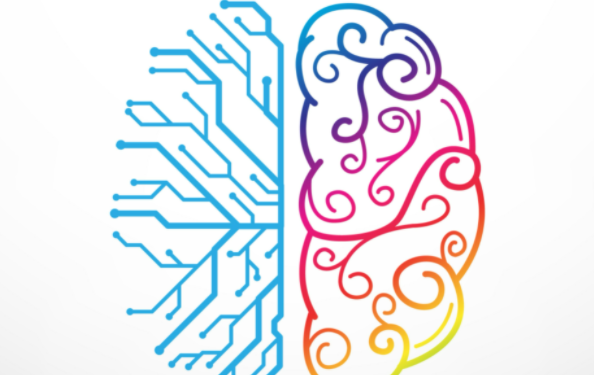by Dr. Amy Moore
I remember calling myself a “right-brained thinker” in college because I was creative, musical, highly emotional, and full of big-picture out-of-the-box-ideas. I struggled to relate to classmates who enjoyed math. They were polar opposite left-brainers who analyzed everything. Imagine my surprise in graduate school when I found myself truly enjoying my research methods and statistics courses. That just didn’t line up with my right-brained persona. I began studying the research on hemispheric domination, the idea that some people are right-brained creative thinkers, while others are left-brained analytical thinkers. I discovered this belief in hemispheric domination to be incredibly pervasive, but simply not grounded in science.
What does science say about left-brain versus right-brain dominance?
The research on hemispheric domination doesn’t support the theory of left-brain versus right brain personality or learning style. In a fascinating study of more than 1000 brains using functional magnetic resonance imaging (fMRI), Nielsen and his colleagues at University of Utah found no global left-brained or right-brained types. Nielsen scanned participants’ brains while they lay still and again while reading. The scans did confirm areas of the brain are predominantly responsible for different functions. For example, the left side of the brain houses most of the brain’s language areas and the right side of the brain largely controls attention. But, they found no evidence the networks in the left or right sides of the brain were stronger than others with no significant variations among the participants.
How did the neuromyth of left-brain versus right-brain dominance start?
How the myth of hemispheric domination became so universal is perplexing. This dichotomous thinking implies scientists aren’t creative and writers aren’t analytical. But what about science writers? Or accountants who play a musical instrument, fashion designers who operate global businesses, surgeons who sing and dance, and statisticians who paint and sculpt? These and infinitely more people are all creative and analytical. So where did the myth originate? A series of studies Roger Sperry conducted in the 1950s and 1960s of ”split-brain” patients might be the origin of this theory.
Sperry performed tests on human volunteers whose corpus callosum—the part of the brain connecting the left and right hemispheres—had been surgically severed to treat epilepsy. In the first experiment, he instructed patients to cover one eye at a time as he showed them an image. Patients could only describe the image when shown to the right eye, which the left side of the brain controls. In the second experiment, he showed patients the same images and asked them to draw what they saw. The drawings were better when crafted with the left hand, which the right side of the brain controls. These studies provided the first evidence of hemispheric lateralization, or that different sides of the brain can perform certain tasks better than the opposite side of the brain. The mainstream media picked up on this evidence and eventually adulterated the results into left-brain versus right-brain personality typing. This happened through the process of the telephone game where you start with one sentence and end up with a far-fetched story after spreading it through dozens of people.
How common is the belief in left-brain versus right-brain dominance?
To my knowledge, no studies have examined this belief among the general public, but they have assessed the pervasiveness of the belief among educators. Sanne Dekker and colleagues at LEARN! Institute conducted a study on teachers’ beliefs about the brain and found 91% of them believed imbalances between the right and left side of the brain explain individual learning differences, and 88% believed we should improve integration between the left and right sides of the brain with exercises. This may help explain why the idea of left-brain and right-brain dominance infiltrated the education system, influences curriculum planning and development, and even serves as the basis for several commercial interventions.
Why should we bust the neuromyth of left-brain versus right-brain dominance?
Despite the fact science simply doesn’t support the theory that hemispheric domination exists or explain differences in personality or learning, busting this neuromyth is important for several other reasons. First, believing you are left-brained or right-brained can impede your personal or educational growth. For example, you may not try something new because you believe you may not be successful at it. Believing you are only competent at certain skills becomes self-limiting. Second, this neuromyth perpetuates stereotypes. For example, it encourages us to think of scientists only as analytical thinkers who aren’t creative or to think of artists only as creative thinkers who aren’t skilled at math or science. Finally, perpetuating this neuromyth wastes valuable time and resources developing tests to determine your “type,” interventions to integrate the two sides of your brain which already work together or instructional practices targeting your dominant side, which doesn’t exist. These resources could be better used to support and encourage the use of the analytical and creative skills present in every brain.
Dr. Amy Moore is a cognitive psychologist and brain training researcher in Colorado Springs, Colorado, at the headquarters of LearningRx, the largest network of cognitive training centers in the world. She specializes in rehabilitation of cognition and learning in neurodevelopmental disorders, brain injury, learning disabilities, and age-related cognitive decline. She is also a TEDx speaker, editor-in-chief of Modern Brain Journal, a board-certified Christian counselor, and co-host of the podcast Brainy Moms. Learn more about her work at www.AmyMoorePhD.com and www.LearningRx.com











